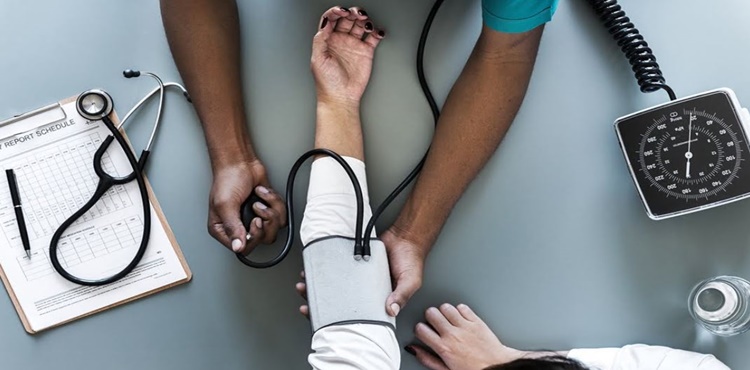In this post we will be looking at the meaning of medical checkup, types of medical check-up/ general check-up package and benefits. Also, the Preventive health screening checklist.
INTRODUCTION
A generation ago, people used to see their doctor only when they were sick, or dying. Today, preventative health care is becoming commonplace as people become more educated and empowered about their own health. People are preemptively seeking medical advice on how to live a healthy lifestyle. They are looking to lower their risk of various conditions or diseases by maintaining a healthy diet, weight, and level of physical activity.
Read: Nigeria Mining Cadastre Office (NMCO)
Doctors are also requesting that patients get regular check-ups to help stay on top of their health. They are highlighting the importance of prevention, as a means to reduce the number of patients requiring medical treatment or surgery. Regular check-ups can help find potential health issues before they become a problem. When you see your doctor regularly, they are able to detect health conditions or diseases early. Early detection gives you the best chance for getting the right treatment quickly, avoiding any complications.
By getting the correct health services, screenings, and treatment you are taking important steps toward living a longer, healthier life. From monitoring weight to early detection of highly suspicious tumors, there have been countless situations were going through a regular medical checkup has saved lives. Now more than ever, preventative health care is essential in taking charge of one’s well-being.
Through an annual physical exam, people are more informed about the condition of their body, the irregularities or risk factors involved, and how to work towards preventing severe health issues. Typically, the frequency of one’s visits to the doctor increases with age, but that does not mean that the young, generally healthy men and women are invulnerable. There are still diseases that do not discriminate, so rather than waiting for an illness to strike, a person must have regular checkups to stay well and live as good of a life as possible.
WHAT IS MEDICAL CHECKUP?
A medical checkup also known as a physical exam is a routine test conducted by a doctor or medical professional to assess a person’s health. Through a series of medical exams, a person would know which parts of the body need more attention to address any symptoms or other health-related concerns with the help of their doctor.
Read: Oil and Gas NipeX Registration
It begins with taking the person’s personal and/or medical history and other relevant information, including previous operations or medical procedures, past and present diseases or health conditions, a list of all current medications, habits, lifestyle, and the like.
A medical check-up List includes the following:
- an evaluation of the person’s eyes, ears, nose, mouth, and throat
- using a stethoscope to examine and listen to the heart, lungs, and bowels
- checking different parts of the body for unusual lumps in the abdomen, and feeling the lymph nodes in the neck, underarms, or groin
- getting the person’s height and weight measurements
- blood pressure checks to know if it is normal, high, or low
- laboratory tests such as complete blood count (CBC) to check for various conditions, a blood test to check cholesterol and glucose levels, and urinalysis to monitor kidney and urinary tract health
The Importance Medical Checkup
There are plenty of benefits to getting checked regularly. They include:
- It helps you identify health risks and understand the current state of your health: A standard medical check-up will help your doctor identify potential health problems and inform them about your general state of health.
- Preventative health care: Early detection of any health condition enables you to take precautions, get the best healthcare and get yourself back on track.
- Reduced risk of developing more health issues: Detecting health issues early typically helps reduce the chance of complications and increases your likelihood of survival.
- Assess your heart disease risks: Your doctor can assess if you are at risk of getting any coronary artery disease and recommend a plan to reduce the risk early.
- Find out about your cancer risks: A medical check-up can help detect cancer risks. With a standard medical check-up, cancer risks, such as family history, can be identified, with preventive measures advised accordingly.
Read: Business/ Company Registration in Nigeria
What Happens During a Medical Checkup
A medical exam typically includes:
- A complete physical examination (including heart and lungs examination)
- Blood and urine tests-Covid-19 test, if required
- Questions about your family’s health history and any other concerns you may have.
- Screenings for high blood pressure, diabetes, cholesterol, cancer screening, and more
- Vaccinations (shots), if needed
Benefits Of Regular Check-Ups
- Reduce your risk of getting sick
- Detect potentially life-threatening health conditions or diseases early
- Increase chances for treatment and cure
- Limit risk of complications by closely monitoring existing conditions
- Increase lifespan and improve health
- Reduce healthcare costs over time by avoiding costly medical services
- Form a good partnership with the doctor so treatment can be more efficient
- Get updated on new medical information or technologies that are available
Preventive health screening checklist.
Annual well-visit (annually)
- Family history
- Blood pressure
- Body mass index (BMI)
- Physical exam
- Preventive screening
- Counseling
Read: Oil & Gas Permits/ Licenses
Cancer screenings
- Colorectal
- Skin
- Breast (women)
- Cervical (women)
- Testicular and Prostate (men)
Sensory screenings
- Eyesight
- Hearing (only if symptoms arise)
Immunizations
- Tetanus, Diptheria (Tdap)
- Influenza
- Pneumococcal
- MMR
- Meningococcal
- Varicella
- Shingles
- Human papillomavirus (HPV)
- Hepatitis A
- Hepatitis B
- Haemophilus Influenza Type B
CONCLUTION
In some cases, a doctor may perform advanced screening or an in-depth diagnostic test—X-rays, computer tomography (CT) scans, electrocardiogram (ECG) or heart activity, cardio stress tests, and the like—depending on the person’s medical history and specific needs.

